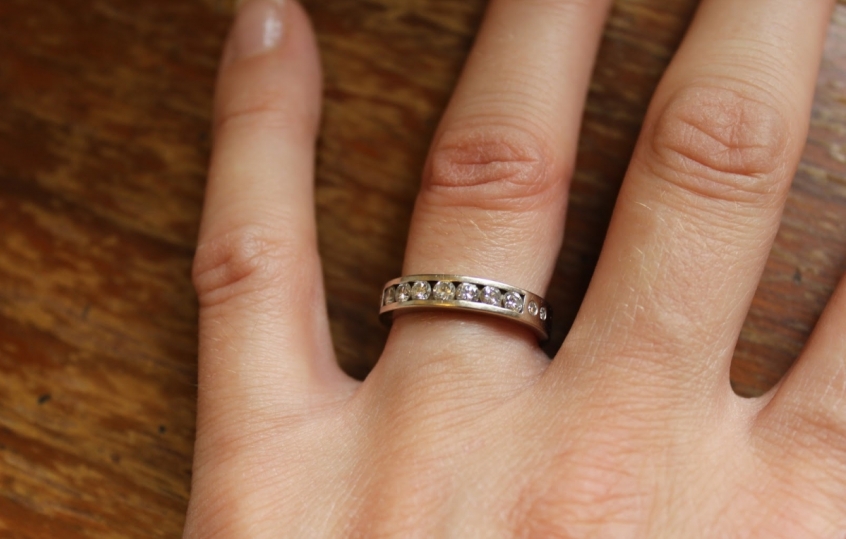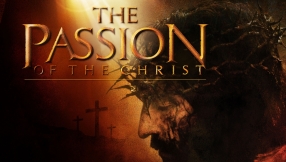
An Italian woman has married herself in front of 70 family and friends in a ceremony which, though not legally binding, included a white dress and three-layer wedding cake topped with a figurine of herself.
The bride, Laura Mesi, told La Repubblica that she had spent just over 10,000 euros (£8,750) on the day, though gifts from the guests helped to cover the expenses.
Mesi said she had not ruled out the possibility of settling down with 'a Prince Charming'. 'If tomorrow I find a man to build a future with I will be happy, but my happiness will not depend on him,' she added.
Mesi is one of a growing number of women who practise what they call 'sologamy', or self-marriage. What can this trend tell us about how marriage is seen in contemporary culture, and how should Christians view it?
The trend began with American Linda Barker in 1993, who declared 'It's about doing things for yourself and not waiting around for someone else to make it happen'. It is not known how many of these ceremonies have taken place since, but has been popularised by the self-marriage of characters in Glee and Sex and the City. Several companies sense enough of a market to begin selling self-marriage services. For instance, hundreds of I Married Me packages, containing rings, vows and ceremony instructions, have been sold by California-based jeweller Jeffrey Levin. They 'allow individuals to be have a physical, tangible way of self-reinforcement and positivity'.
At one level, sologamy might be a sign that, despite predictions that marriage will soon be extinct, it is being extended rather than rejected. Sophie Tanner, who married herself in a Unitarian Church, with her friend James presiding in a rented bishop's costume, has become something of an evangelist for sologamy. While critics have called the ceremony narcissistic, she affirms that 'Sologamy is committing to truly love yourself and, as a result, become more emotionally available to accept and understand others. Developing a sense of self-worth, as opposed to insecurity, allows you even greater capacity for human connection'.
Tanner's comment contains some biblical truth. Indeed, some interpretations of Jesus' command for us to love others as we love ourselves implies that we cannot give ourselves away unless we are coming from a sense of fullness in ourselves. However, if the reason for self-marriage is, as Tanner maintains, self-compassion, then why the need for a ceremony? After all, it is not legally binding, one cannot divorce oneself, and since it does not preclude any future romantic relationships, one seemingly cannot commit adultery either. Marriage ceremonies have traditionally been seen as uniting two persons but one person cannot be brought closer to themselves by a ceremony. One is committed to oneself through sickness and health, good times and bad simply because there is no other option.
Tanner explains why the ceremony is central to sologamy: 'The Western world is increasingly devoid of ritual and spiritualism which is a shame because ritual is fundamental to human growth, identity and development', Tanner continues. For her, self-weddings represent a coming-of-age rite.
This suggests that at least two definitions of marriage are at work in modern society. On one hand, Christians understand marriage as an institution ordained by God which unites two persons in a lifelong relationship. On the other, marriage simply represents a stage of life, of no definite duration. No wonder those who do not get married feel marginalized, as the implication is surely that a single person has not sufficiently progressed.
This thinned-out view of marriage is epitomized by Alexandra Gill, a Canadian who has both married herself and renewed those vows, in a comment to The Telegraph: 'A wedding is just a marker in life... Self-marriage is an opportunity to celebrate our personal independence, self-reliance and freedom from the chains of convention'.
What is being celebrated here, then, is an escape from things that Christians would view as part of being human: we cannot escape dependence on others, and it is in deep, give-and-take relationships that we find ourselves.
Insofar as this trend represents a rejection of view that underlies most pop songs and romantic comedies – that one needs a romantic partner in order to be complete – then it accords with biblical teaching. Unlike popular culture, the Bible does not hold that marriage equates to 'happily ever after' or that those who remain single are in some way deficient. After all, Paul said in his letter to the Corinthians that 'it is good for them [the unmarried and widows] to stay unmarried, as I do'. If women feel obliged to get married by contemporary culture obliges them to get married, Ancient Greek society was even more forceful in that regard. In the culture in which Paul wrote, all women were expected to marry, there was no provision or role for single adult females, and if a woman was left a widow, she was obliged to marry a close male relative so that property remained within the family.
Paul was firm on what the gospel meant in a marriage-centric society: single, or married, your value and dignity comes from who you are in Christ. Marriage may well be one of the ways in which our rough edges are smoothed as we learn to compromise and, in making sacrifices, find ourselves. But it is not the only relationship in which it is possible to mature and be sanctified.
Sologamists are right in arguing that those in romantic partnerships should not be seen as worthier than their single counterparts, as though one's self-respect should depend on the affections of another human. Yet, there is a risk that making vows to oneself in a public ceremony misses the point. Self-acceptance is not the ultimate goal of human existence, and nor is self-sufficiency. If not narcissistic, self-marriage is inherently individualistic. It looks to oneself to define and establish one's own worth, when a biblical perspective holds that that is given to us by God. And furthermore, we receive His love so that we might show love to others.













